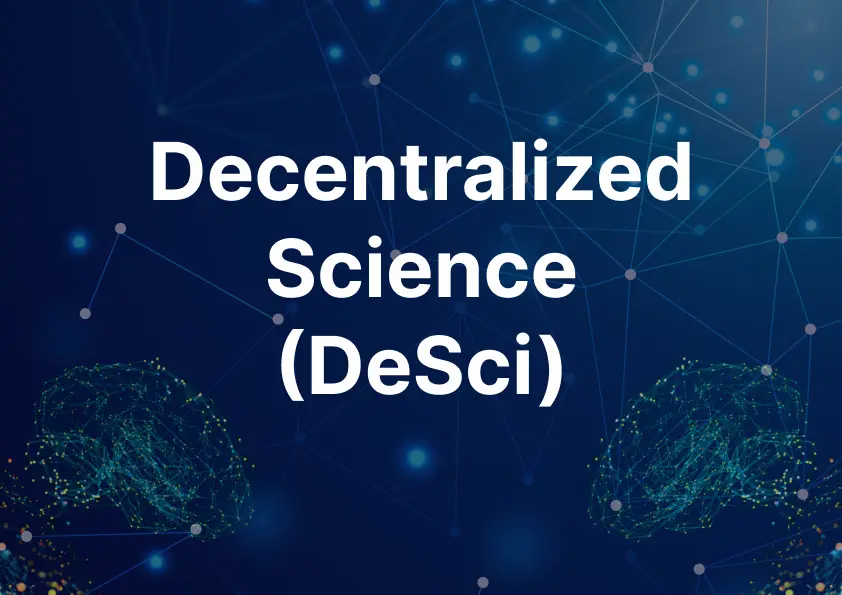Comprehensive Guide to DeSci: Unlocking the Future of Science
Comprehensive guide to DeSci is becoming an essential resource for researchers, innovators, and enthusiasts eager to understand the decentralized revolution transforming science. Decentralized science (DeSci) envisions a world where research is open, transparent, and collaborative, breaking down traditional barriers that limit access to knowledge. Leveraging blockchain, tokenized incentives, and global collaboration networks, DeSci is poised to redefine the way discoveries are made and shared.
What is DeSci?
DeSci, short for Decentralized Science, is a paradigm shift in the scientific ecosystem. Unlike conventional research systems dominated by gatekeepers, paywalls, and exclusive institutions, DeSci empowers researchers and citizen scientists worldwide to participate in cutting-edge projects. By combining decentralized technologies with peer-to-peer networks, DeSci aims to:
- Democratize access to scientific knowledge and datasets
- Incentivize collaboration through tokenized rewards
- Enhance reproducibility and verification of findings
- Streamline peer review systems
- Simplify intellectual property management
This approach fosters transparency, accelerates discoveries, and cultivates an inclusive research environment.
Key Components of DeSci
Open Data & Open Access
At its core, DeSci removes the traditional barriers surrounding scientific knowledge. Open access to papers, datasets, and experimental results ensures that breakthroughs are not confined to select institutions. More minds analyzing data translates into faster innovation and more reliable findings. The Open Science Framework provides an example of initiatives aligned with this principle.
Decentralized Storage & Computation
DeSci utilizes decentralized storage solutions, such as IPFS and blockchain-based systems, to safeguard sensitive research data. Distributed computation allows computationally intensive tasks to be processed across global nodes, reducing reliance on single centralized entities and improving resilience. This architecture ensures transparency, data integrity, and robustness against tampering or data loss.
Tokenized Incentives
Researchers often receive limited recognition for their contributions. DeSci addresses this by introducing tokenized incentives, enabling participants to earn cryptocurrency or digital tokens for their work. This system aligns rewards with scientific progress, creating a sustainable, self-reinforcing ecosystem that values contributions in real time.
Open Collaboration & Crowdsourcing
DeSci promotes global collaboration by connecting scientists, enthusiasts, and interdisciplinary teams. Projects can leverage diverse perspectives and skills, accelerating problem-solving and innovation. Platforms such as Molecule exemplify how DeSci encourages open research partnerships and decentralized clinical trials.
DeSci vs. Traditional Science
Traditional science often resembles an exclusive club, with knowledge confined behind institutional paywalls. Research results are published selectively, and funding is concentrated among elite organizations.
DeSci disrupts this model by emphasizing openness, transparency, and global collaboration. Researchers can engage in decentralized peer review, contribute across borders, and receive tokenized incentives for impactful work. Unlike traditional models, DeSci fosters a level playing field where innovation is accessible to anyone with the expertise and curiosity to contribute.
Real-World Applications of DeSci
Drug Discovery and Development
DeSci is transforming pharmaceutical research through decentralized clinical trials. Wider access enables faster patient enrollment, diversified datasets, and accelerated drug discovery. By bypassing traditional bottlenecks, life-saving treatments can reach patients more efficiently.
Environmental Research
Citizen scientists around the globe are contributing to climate studies, biodiversity monitoring, and ecosystem assessments. DeSci’s crowdsourced data approach empowers environmental research by offering comprehensive, real-time datasets far beyond the scope of conventional institutions.
Cutting-Edge Fields
From genomics to astrophysics, DeSci can revolutionize multiple scientific domains. Collaborative networks unlock the potential for breakthrough discoveries in areas previously limited by resource constraints or institutional silos. Collective intelligence enables researchers to tackle complex, interdisciplinary challenges more effectively.
Challenges and Limitations of DeSci
Adoption and Cultural Shift
The scientific community may resist adopting decentralized frameworks. Convincing established researchers, institutions, and funders to embrace new methodologies requires substantial cultural change and awareness campaigns.
Governance and Coordination
Maintaining quality and consistency in decentralized research is complex. Effective governance models must balance openness with rigorous standards to prevent misinformation, duplication, and coordination issues.
Security and Privacy Concerns
Handling sensitive research data on decentralized networks introduces potential vulnerabilities. Strong security protocols and privacy measures are critical for building trust and ensuring responsible data handling.
Incentive Structures
Designing fair and sustainable tokenized incentive systems remains challenging. Avoiding manipulation, ensuring equitable rewards, and fostering long-term engagement require careful economic modeling and oversight.
FAQ: Comprehensive Guide to DeSci
Q1: What is the primary goal of DeSci?
The primary goal of DeSci is to democratize scientific research, making it open, transparent, and collaborative while leveraging blockchain and decentralized technologies.
Q2: How does DeSci differ from traditional science?
Unlike traditional science, which is controlled by institutions and paywalls, DeSci fosters global collaboration, open access, and tokenized incentives for contributors.
Q3: Can DeSci accelerate scientific discoveries?
Yes. By enabling crowdsourcing, open data, and decentralized computation, DeSci can significantly reduce research timelines and improve reproducibility.
Q4: What are the challenges of adopting DeSci?
Key challenges include cultural resistance, governance complexity, data security concerns, and designing effective incentive structures.
Conclusion: The Future of DeSci
DeSci represents a bold reimagining of scientific research. By combining transparency, decentralized networks, tokenized incentives, and open collaboration, it dismantles traditional barriers and unleashes collective human ingenuity. While adoption and governance remain challenges, the potential for accelerating discoveries, democratizing knowledge, and fostering innovation across disciplines is enormous.
As decentralized science matures, it will likely reshape global research practices, bridging gaps between professional scientists and citizen innovators, and ushering in a new era where breakthroughs are limited only by imagination.

